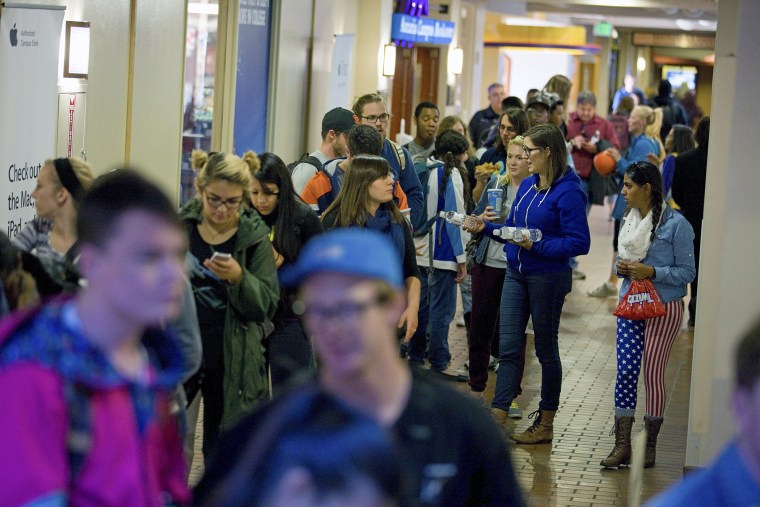This column is part of “The State of America,” an msnbc.com series leading up to President Barack Obama’s 2015 State of the Union Address on Tuesday, Jan. 20. This is the state of the issues you care about, as told by organizations promoting social change.
The millennial generation is the largest and most diverse in the United States – 93 million strong, 43% from communities of color, outnumbering even the baby boomers. Despite making up more than one-third of the population and holding the power to become the most influential voting bloc in the country, young people are frustrated with the political process and are opting out of participating.
RELATED: How speaking to young people is the key to votes
Millennials often get a bad reputation, portrayed in the media as spoiled, lazy and entitled. The truth of the matter, though, is that we inherited some overwhelming problems from previous generations. We also inherited a bitingly partisan, polarized political system that seems to be stuck in gridlock more often than not. We question our ability to have an impact and to make a difference through official channels, as evidenced by the fact that 23% of eligible voters 18-29 voted in 2014, in contrast to the 87% who made a difference by donating to or volunteering with a charity last year.
"Young people are frustrated with the political process and are opting out of participating."'
Some statistics, however, illustrate exactly why some millennials would turn out. We have been hit particularly hard by the economy, and we are the first generation in modern history to have higher levels of poverty and unemployment and lower levels of wealth and personal income than the two immediate preceding generations had at the same stage of their lives. Simultaneously, millennials are the best-educated group of young adults in American history, but we are saddled with an average student loan debt of $27,000 – nearly twice the average of 20 years ago.
With these difficult circumstances, it is sometimes hard for young people to see how elections – and the public policy that follows – positively influence and change their lives. But make no mistake about it, they do.
Despite our difficult economic climate, over the last five years, our elected officials at the state and national level have created economic policies to pull the economy out of the “Great Recession.” Five years ago this month, the unemployment rate hovered at just under 9.8%. Since then, an estimated 8.3 million jobs have been added to the U.S. economy, and the unemployment rate has dropped to 5.6%. There is still work to be done to make sure young people see the benefits of this improved economic climate, but those are impressive numbers, nonetheless.
RELATED: Dems struggle as older voters dominate
In the same five years, elected officials implemented policies that advanced equality and embraced diversity, which are very important values to millennials. Today, 70% of the U.S. population lives in one of the 35 states where same-sex couples are allowed to marry – compared to just four states that allowed same sex marriage in 2010. Openly LGBT persons are no longer banned from serving in the United States military, and our federal judiciary more closely resembles the diversity of our country than ever before.
"The state of our union is strongest when we are all a part of the conversation at the ballot box."'
This progress is making a real difference in people’s lives, but has been overshadowed by ongoing partisan bickering and news coverage focused on the horse race of each election more than on the real issues that young people care about. It is little surprise that this climate produced low voter turnout across all age groups in 2014.
With 12,000 Americans turning 18 every day, it’s more important than ever for young people to feel empowered to set the course for our country by making their voices heard at the ballot box. At Rock the Vote, our mission is to engage young people in the political process and inspire participation. We will continue to focus on making sure that all young people are registered to vote; have access to all of the information they need to go to the polls as informed voters; and feel empowered to participate and make an impact through civil engagement.
We will work with cultural leaders to raise awareness about elections and the impact young people can have by voting. We will enhance our technology and adapt our outreach strategies to meet young people where they are – online – to cultivate a stronger culture of civic participation.
Rock the Vote will also continue the fight to protect young people’s right to vote. We will defend every millennial’s right to cast a ballot for whatever individual, whatever party they choose. We will continue to work with elected officials of all stripes to make voting as easy and accessible as possible – by adopting Election Day registration and no-excuse absentee ballot voting, promoting free and fair ID laws, and expanding early voting periods. Because the state of our union is strongest when we are all a part of the conversation at the ballot box.
Ashley Spillane is the President of Rock the Vote.
